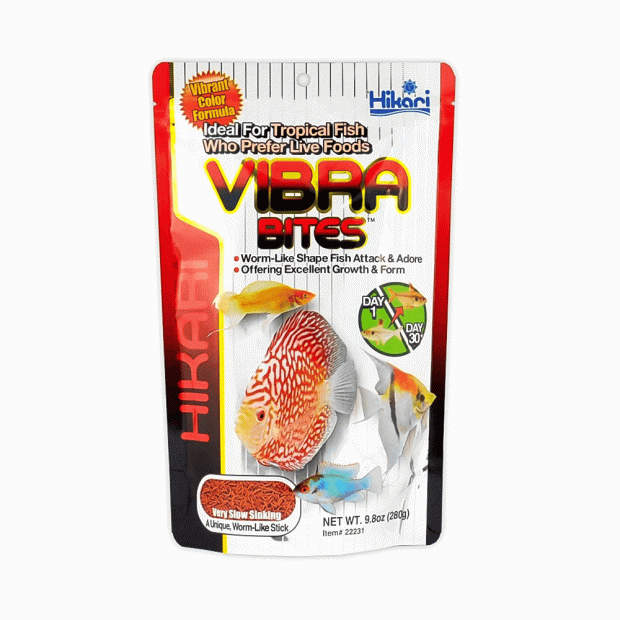Discus Food
Help and advice on shopping for: Discus Food
Discus are one of the world's most coveted tropical fish. Their natural habitat is the warm, acidic waters of the Amazon in South America, where Discus eat a varied diet of food items from insects and shrimp to plant matter, algae and other macrophytes in the wild.
In an aquarium they have very specific dietary requirements however and are known for being picky. If Discus aren't fed the right balanced diet, in the right frequency, their growth can be stunted, they can become sick and may actually lose weight.
Is bloodworm good for Discus fish?
The most important requirement in any Discus food is protein. Discus like to eat live, frozen or freeze dried bloodworms but bloodworm is low in protein and not a complete diet for them. Brine shrimp are similar.
Beef heart is a better frozen diet but the best Discus food is a complete dry food that's been specially formulated for them and includes all the protein, vitamins and minerals they need to stay healthy, grow, and breed.
Dry food like slow sinking Discus granules and micro pellets should be the staple food in any Discus diet. They don't always accept flake foods. Frozen food and live foods can then be offered occasionally as treats. Swell UK offer many of the world's best discus dry food brands that offer the correct crude protein and nutrients from the best food sources and are a complete food.
How should you feed Discus?
The warm water habitats that Discus live in also increase their metabolisms, so they should be fed several times throughout the day. If your filtration and water change regime can cope, feed Discus four times per day. A well-fed Discus is a happy Discus, and it will be hardier and more resistant to disease.
Discus pellets and granules are perfect for automatic fish feeders and Discus keepers can programme them to dispense food four times per day at timed intervals. Only feed as much as they will eat in a few minutes and if any food is left over after each serving, you're feeding too much food.
Discus food will also be eaten by a wide variety of other fish including Tetras, Gouramies, Barbs, Catfish, Loaches and other cichlids. The high protein levels will encourage healthy growth in most fish.
Tips for Discus feeding
Discus can be messy feeders that prefer their food to sink first, so provide a clear area at the front of the tank for them to feed. That also makes vacuuming any uneaten food easier too. Discus are shoaling fish which will be much happier in groups of ten or more same-sized fish. Don't keep them on their own, with any larger fish or aggressive feeders. All Discus should be treated for worms occasionally as they are susceptible to intestinal worms. Worms can stunt growth and cause Discus to lose weight and waste away.












